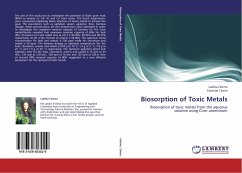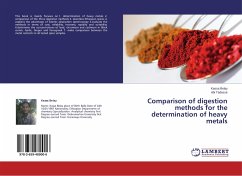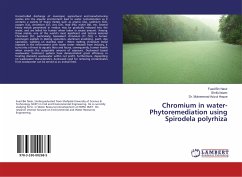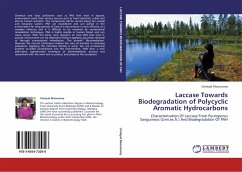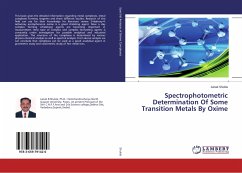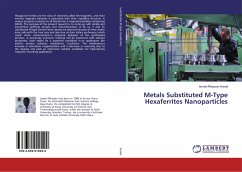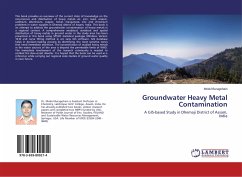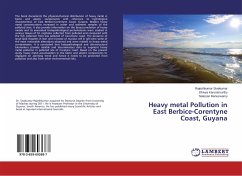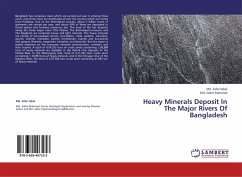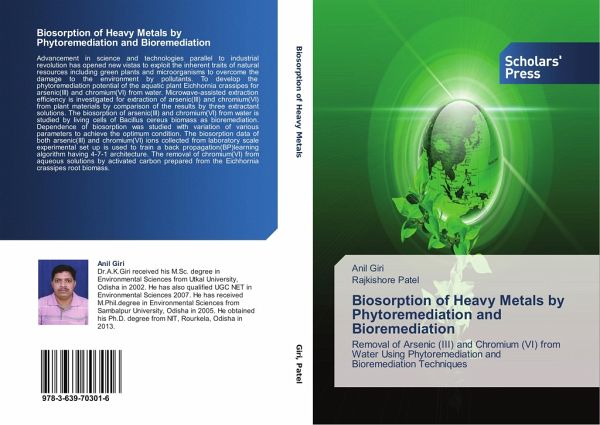
Biosorption of Heavy Metals by Phytoremediation and Bioremediation
Removal of Arsenic (III) and Chromium (VI) from Water Using Phytoremediation and Bioremediation Techniques
Versandkostenfrei!
Versandfertig in 6-10 Tagen
59,99 €
inkl. MwSt.

PAYBACK Punkte
30 °P sammeln!
Advancement in science and technologies parallel to industrial revolution has opened new vistas to exploit the inherent traits of natural resources including green plants and microorganisms to overcome the damage to the environment by pollutants. To develop the phytoremediation potential of the aquatic plant Eichhornia crassipes for arsenic(III) and chromium(VI) from water. Microwave-assisted extraction efficiency is investigated for extraction of arsenic(III) and chromium(VI) from plant materials by comparison of the results by three extractant solutions. The biosorption of arsenic(III) and c...
Advancement in science and technologies parallel to industrial revolution has opened new vistas to exploit the inherent traits of natural resources including green plants and microorganisms to overcome the damage to the environment by pollutants. To develop the phytoremediation potential of the aquatic plant Eichhornia crassipes for arsenic(III) and chromium(VI) from water. Microwave-assisted extraction efficiency is investigated for extraction of arsenic(III) and chromium(VI) from plant materials by comparison of the results by three extractant solutions. The biosorption of arsenic(III) and chromium(VI) from water is studied by living cells of Bacillus cereus biomass as bioremediation. Dependence of biosorption was studied with variation of various parameters to achieve the optimum condition. The biosorption data of both arsenic(III) and chromium(VI) ions collected from laboratory scale experimental set up is used to train a back propagation(BP)learning algorithm having 4-7-1 architecture. The removal of chromium(VI) from aqueous solutions by activated carbon prepared from the Eichhornia crassipes root biomass.



